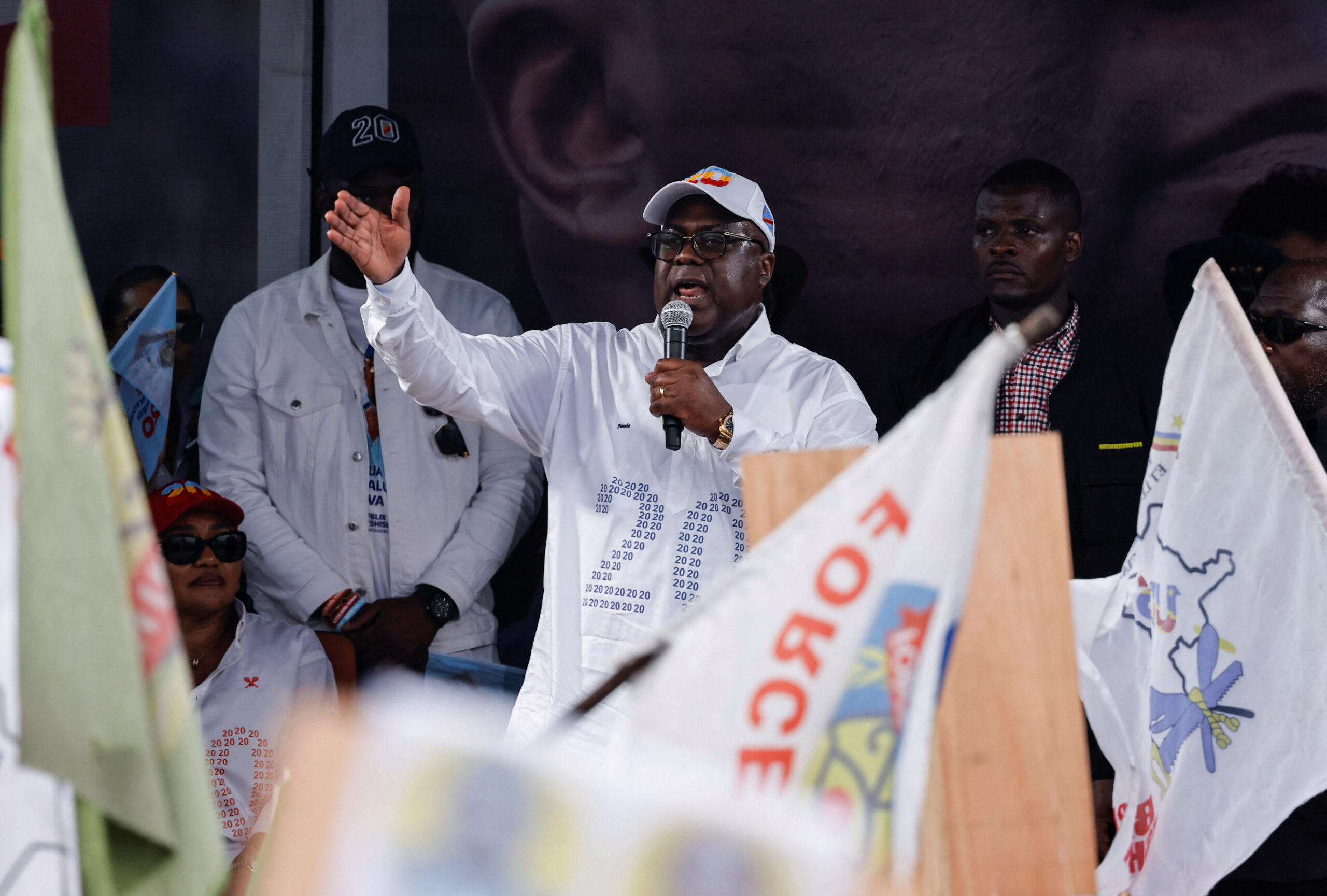Is there a secret to longevity? This health expert says 1,000% yes
In the era of social media, post-COVID, and with mental health at the forefront, a shift is taking […]

The elections’ results indicate that President Felix Tshisekedi has secured a second five-year term in the Democratic Republic of Congo, as announced by the election commission on Sunday. This declaration comes amidst strong objections from leading opposition candidates, who expressed discontent with the disorderly voting process and received criticism from both domestic and international observers.
Numerous polling stations failed to open on the scheduled day of the December 20 vote due to delays in receiving election materials. Consequently, an unplanned second day of voting was initiated to compensate for the setbacks. Tshisekedi’s main challengers, including his top rival, deemed this extension as illegal, urging the cancellation and rerun of the election.
Observation missions noted “numerous irregularities” in the voting process for president, parliament, and regional assemblies. However, they refrained from asserting that these irregularities had altered the outcome of the presidential vote.
The arguments
Despite being Africa’s fourth-most-populous country and a key global producer of copper, cobalt, gold, and other minerals crucial for the global green energy transition, corruption has severely impacted Congo’s economy, rendering it one of the world’s five poorest nations. Approximately two-thirds of its 100 million inhabitants live on less than $2.15 per day. The eastern region of Congo has been plagued by numerous rebel groups, causing a significant regional security and humanitarian crisis. Over the past few decades, nearly 7 million people have been displaced in the east, marking the largest recorded exodus in Congo’s history. Approximately a quarter of Congo’s population is in need of food aid, according to the World Food Program.
The results announced on Sunday reveal Tshisekedi securing 73% of the vote, followed by millionaire mining mogul Moise Katumbi at 18% and former energy executive Martin Fayulu, widely considered the legitimate winner of the previous election, trailing far behind at 5%. Nobel Peace laureate Denis Mukwege, whose hospital aids women affected by conflict-related violence, received only a small percentage of votes.
The facts
Since gaining independence from Belgium’s oppressive colonial rule in 1960, Congo has been marked by the dominance of strongmen and the turmoil of secessionist movements. In the aftermath of conflicts that concluded two decades ago, millions of lives were lost, primarily due to disease and hunger. In 2019, Congo experienced its first peaceful transfer of power when voters rejected the handpicked successor of outgoing President Joseph Kabila. Tshisekedi emerged as the declared winner amid his departure from an opposition alliance and amid speculation of a deal with Kabila. However, civil society and election observers widely criticized the outcome, labelling it as rigged.
President Tshisekedi is often perceived as more pro-Western than his predecessor, Kabila, due to his reconsideration of some mining contracts signed by Kabila, a key request from the U.S. government. However, critics argue that Tshisekedi’s review of mining contracts was primarily a political maneuver to garner favour with the Americans. The discussions surrounding these contract revisions were opaque, leaving uncertainty about the extent of the additional revenue obtained and its allocation.
Congo’s anti-corruption commission witnessed the dismissal of both of its successive heads for corruption, although no prosecutions followed. A trial addressing the disappearance of hundreds of millions of dollars in revenue from a lucrative yet unpopular phone registration tax was abruptly halted without hearings.
The opposition parties are awaiting official results to challenge them in court. Katumbi, a prominent opposition figure, expressed reluctance to file a case, citing perceived judicial bias. Attempts at protest marches were met with police intervention, citing a ban on such demonstrations. The fragmented nature of Congo’s opposition may hinder a unified response.
While the legitimacy of Tshisekedi’s presidential win is considered plausible, the overall electoral process has been marred by chaos. Tshisekedi’s strong support, as indicated by pre-polling, was attributed to a populist, nationalist campaign and popular policies, such as free primary education. However, widespread disorder in other races could erode public trust in democracy, leading to concerns about the efficacy and cost-effectiveness of the electoral process in a country facing economic challenges.
Congo’s significant resources, large population, and expansive size make it a political heavyweight in Africa. The conflicts in its eastern region often spill over borders or involve forces from neighbouring nations. U.N. experts allege that Rwanda supports M23, one of Congo’s brutal rebel groups, while Ugandan troops in eastern Congo pursue Islamic State-affiliated militants known for kidnapping children. The instability in Congo poses a threat to the broader Great Lakes region in Africa, especially as Russian influence expands following coups in the Sahel, and Sudan’s civil war extends into the Horn of Africa.

In the era of social media, post-COVID, and with mental health at the forefront, a shift is taking […]

With its fast speeds and revolutionary potential, 5G stands out as a noteworthy milestone in the field of […]